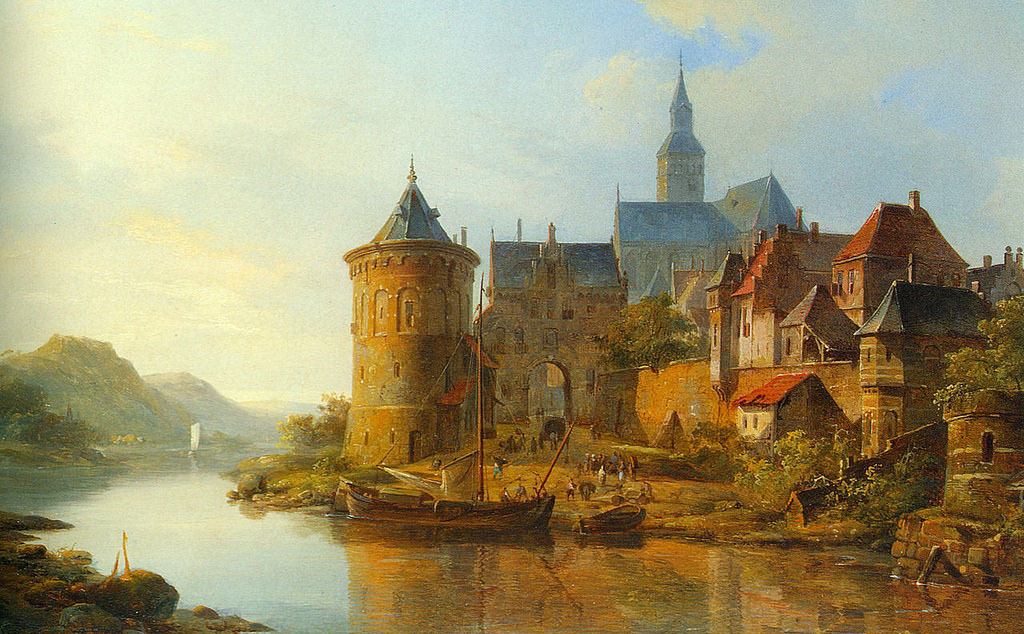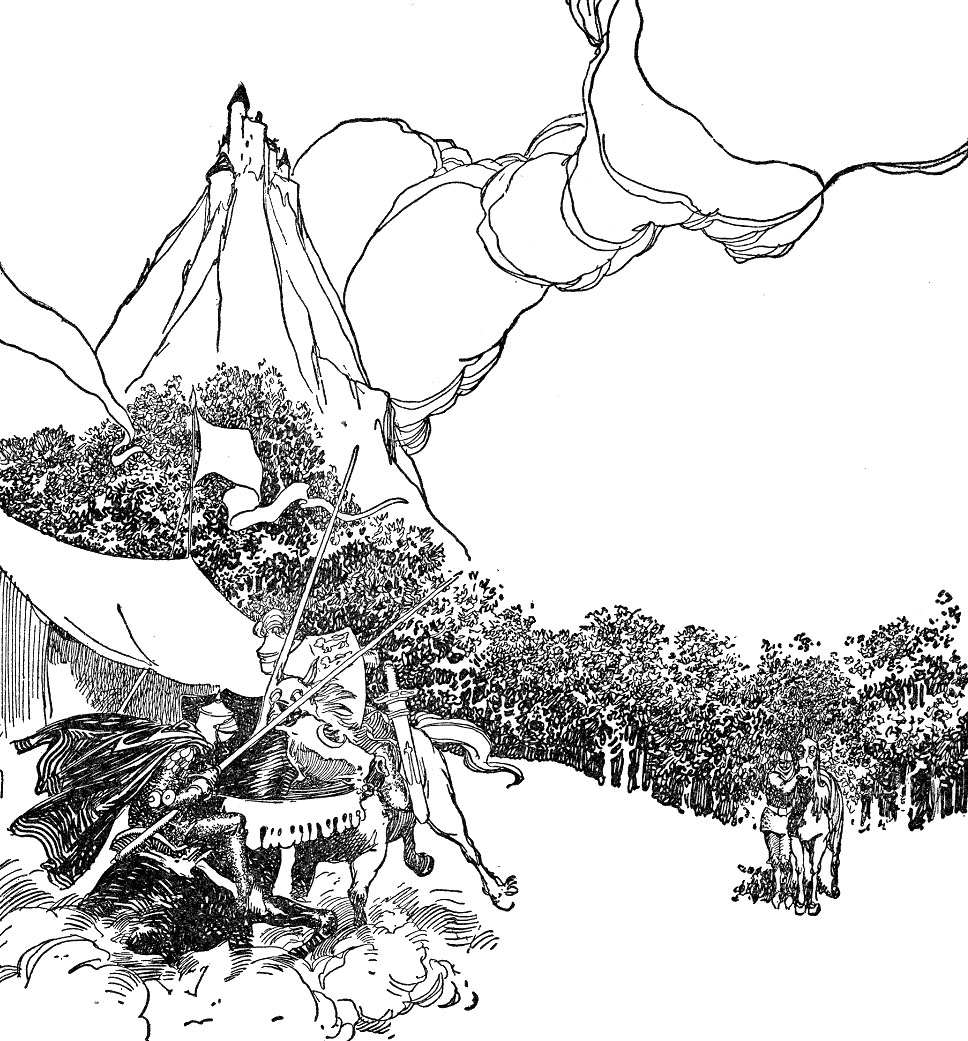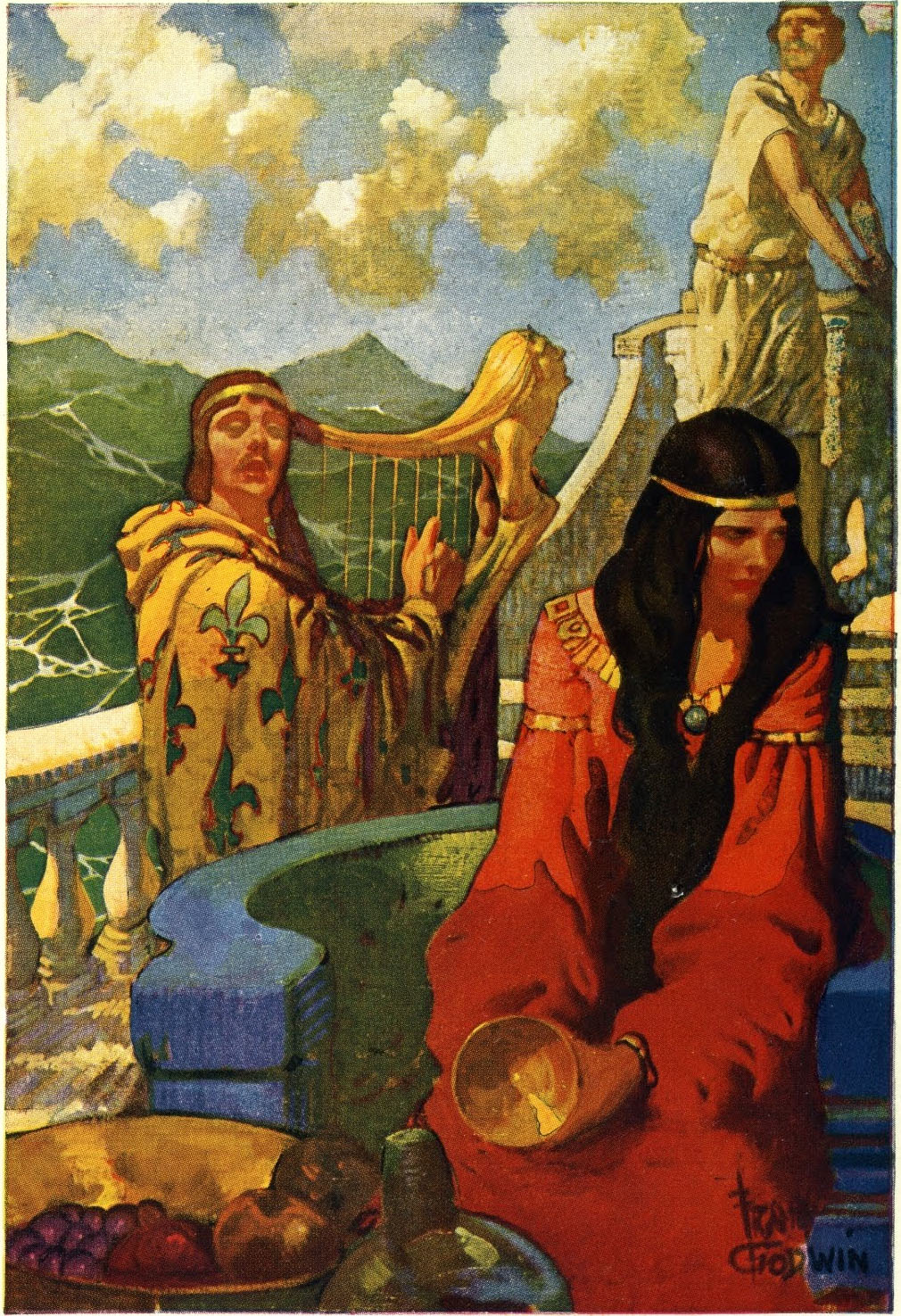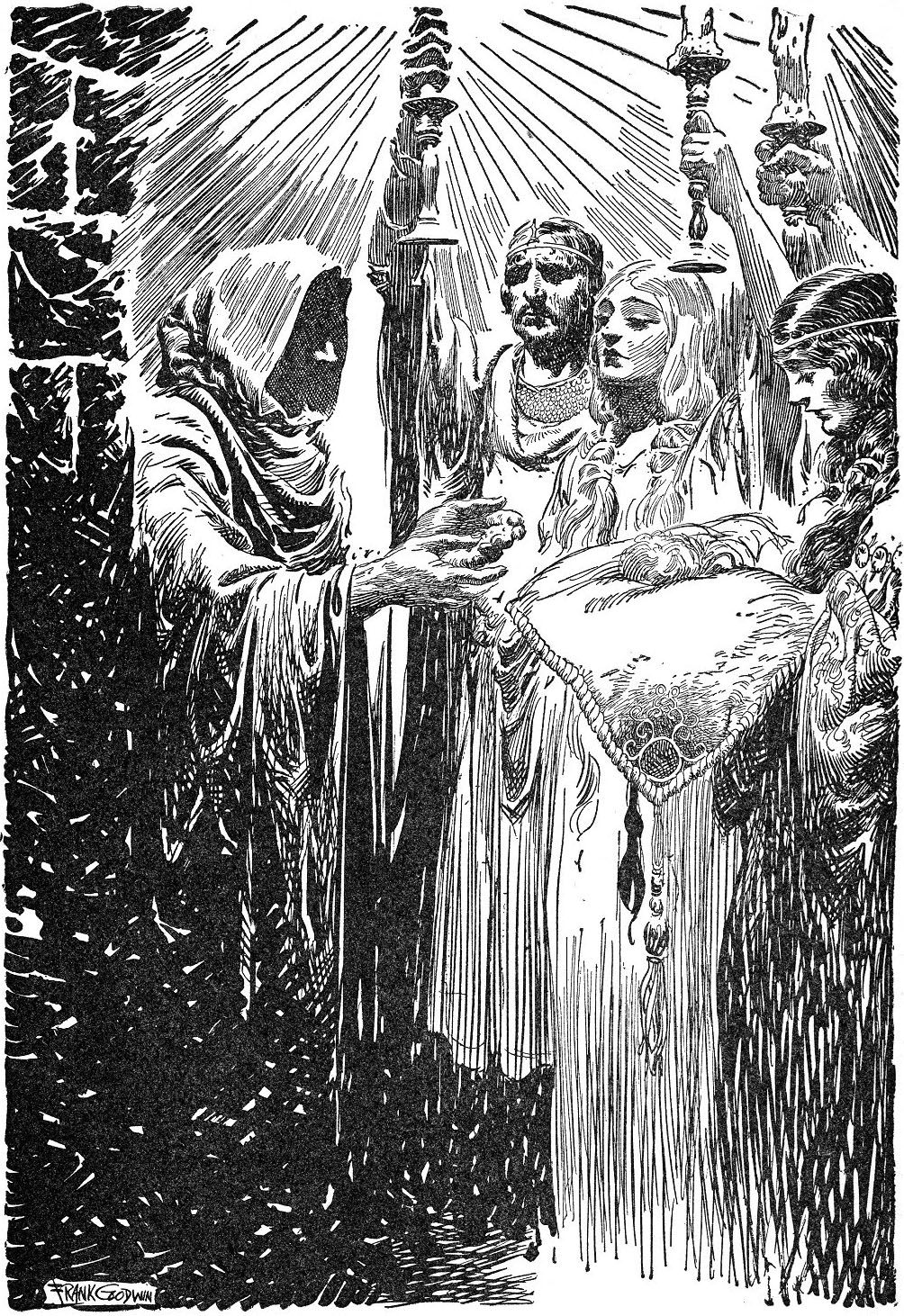Go to Part 1 – Go to Special Interest Rules

Carousing: Includes drinking, gambling, lusting, entertainment, drugs, fine dining, and all manner of merriment. A good carousing can last the better part of a week. Characters with high Constitution scores can keep going longer than their comrades. When rolling for the community’s carousing GP limit, add a bonus to the die roll based on the character’s Constitution (13-15: +1, 16-17: +2, 18: +4).
Complication: Carousing requires a save vs. poison. On a failure, roll a complication.
Carnavale: The money expended here goes towards enjoying gladiator duels, races (chariot, griffon, etc.), masques, festivals, parades, triumphs, jousting  tournaments, and similar spectacles. Those spending significant amounts of money in this Special Interest are actually sponsoring games and other events (which will, in the grand tradition of bread and circuses, most likely make them quite popular with the populace).
tournaments, and similar spectacles. Those spending significant amounts of money in this Special Interest are actually sponsoring games and other events (which will, in the grand tradition of bread and circuses, most likely make them quite popular with the populace).
Philanthropy: The creation or support of private initiatives for the public good. Orphanages, libraries, public hospitals, children’s charities, education programs, almshouses, establishing public infrastructure, the Continual Light Streetlight Foundation, the Spectral Society, the Circle for the Succor of Bereft Familiars, or any number of other possibilities exist.
Religion: Generally tithing or, depending on the faith in question, the purchase of actual sacrifices to be offered to the gods (fatted calfs and so forth).
For purely monetary tithing, the normal community GP limit does not apply. (The church will happily take all the money you choose to give to it.) However, unusually large donations risk attracting the attention of the gods. (And not always the god you were looking to appease!) Roll an additional complication check for each multiple of the community GP limit donated. (For example, if the GP limit is 100 GP and you donate 350 GP, you would roll four complication checks – the normal one, but one additional check for exceeding 100, 200, and 300 GPs.)
 Song/Fame: Expenditures in this Special Interest represent a character’s efforts to increase their fame or notoriety. Sponsoring bards to compose and perform songs of their deeds, publishing personal memoirs, and so forth.
Song/Fame: Expenditures in this Special Interest represent a character’s efforts to increase their fame or notoriety. Sponsoring bards to compose and perform songs of their deeds, publishing personal memoirs, and so forth.
In addition to the normal community GP limit, expenditures in this category are limited to 100 GP per delve/adventure the character has participated in. (The bards can only do so much with limited material.)
Training: Wealth spent in this Special Interest simply represents paying for expert training and/or training equipment. In order to train most effectively, a character must have access to a sufficiently skilled trainer. (Any character with a higher level in the same class is considered such automatically, but at the GM’s discretion some teachers may be capable of effectively training those better than themselves.) If such a trainer is not available, expenditures in this Special Interest only generate half the normal amount of XP.
Hoarding: When hoarding gold pieces, you simply stash them away. If your hoard is ever lost, stolen, or you’re forced to spend your stash, however, it creates an XP deficit equal to the XP gained from hoarding the gold in the first place. This won’t cause the character to lose levels, but they’ll need to pay off the XP deficit before accruing more.
- Complication: 1 in 20 chance per quiescence that something threatens the hoard.
Hobbies: The Hobby category covers a wide variety of different activities. Most characters will generally focus on one or two hobbies, however, and players should give some thought to what they are. GPs spent in Hobbies can be used for hobby equipment (as long as that equipment does not have an adventuring application), but is more likely to be spent contributing to the completion of projects.
- Sample Hobbies: Creature Husbandry (Growth, Breeding, Control, Increasing Intelligence, Magical Alterations, Frankensteinian Experiments), Robotic Tinkering, Device Creation/Improvement, Languages, Brewing, Hunting, Art, Spell Research, Item Creation
- Defining Projects: When a character proposes a project (breeding a hydra with more heads, creating a series of commemorative sculptures dedicated to dead heroes, writing and printing several hundred copies of a political manifesto) the GM defines that project in terms of a progress clock (a circle divided in 4, 6, or 8 segments, with larger numbers of segments representing more difficult projects), a GP cost per segment, and an appropriate ability score that can be used to work on the project.
- Completing Projects: Once per quiescence, the character can spend GPs equal to the cost of one or more project segments and attempt to advance the project by making an ability score check. Each additional segment they are attempting to complete past the first applies a -1 penalty to this check. If the check is successful, they can fill in the number of segments they were working on. If the check fails, no segments are filled in. In either case, they spend the GPs and gain XP accordingly. If all of the segments in the project’s progress clock are filled in, the project has been completed.
- Special Materials: At the GM’s discretion, some projects (or project segments) may require specific special materials which can only be acquired through questing in order to complete them.
- Arcane Projects: See below.
- Complication: 1 in 6 when attempting to complete a project.
RACIAL SPECIAL INTERESTS
Human – Generalist: Roll 1d8 to determine a second random Special Interest. (If you roll the same result, re-roll until you get a different result.) This Special Interest is also rated at 100%.
Dwarven Clan Hoards: Each dwarven clan maintains a hoard. The size of a clan’s hoard determines its prestige, political power, mining rights, bearding patents, and other cultural cachet. A dwarf can donate money to their clan hoard as a Special Interest. There are no withdrawals from a clan hoard(unless the clan is in a truly precarious state), so any money so donated is “lost” to the character.
- There is no limit to the amount of money that can be donated to the clan hoard, but it must be sent to the hoard via caravan.
- Roll 2d6+3 x 10% to determine the dwarf’s rating in this Special Interest.
Elven Tree Offerings: Throughout their long lives, elves will craft small spirit totems. (Roughly the size of your hand.) Many will carve simple wooden figures, but those who can afford to do so will create elaborate totems made from rare metals, precious gems, unusual alchemicals, and the like. Each of these totems is left at the foot of a tree, and elves believe that these trees will guide them to the afterlife. Some believe that dryads are born from these spirit totems; gestalt spirits formed from the eldritch patchwork of the myriad elven soul shards left within the totems.
- The amount of money which can be spent on an individual spirit totem is limited by the community’s GP limit, but gemstones (and other appropriate substances subject to the GM’s approval) can be “spent” above this limit by incorporating them into the totem’s design. (This money can be spent on a single spirit totem or split across multiple, more modest spirit totems.)
- Elves automatically have a 100% rating in this Special Interest. However, if they place their spirit totem at the base of a particularly sacred or powerful tree (usually requiring a pilgrimage to distant lands or a quest of some sort) the GM can award a bonus of +10% to +50% depending on the potency or significance of the tree in question.
- Elves can only meaningfully place one spirit totem per tree.
Hobbit Gifting: Hobbits build community through gift-giving. They throw gifting parties at which they give away gifts to all of the invited guests. Traditionally each gift must be hand labeled, with the papers and inks selected having various ceremonial and coded meanings.
- Once per year, hobbits can throw a gifting party on their birthday. (Determine the date randomly.) On this special occasion, they gain twice the normal amount of XP per GP spent on gifts.
- 20% of the total value of gifts given at a gifting party can be given to other PCs. (Additional gifts can be given in excess of this, but their cost will not grant XP.)
- Hobbits determine their rating in this Special Interest normally (2d6 x 10%).
ARCANE PROJECTS
XP for Arcane Projects: Generally speaking, any project which actually creates an item (spell egg, magic sword, etc.) will not grant XP. (It’s just like money spent to purchase any other adventuring equipment.) Creating plans, researching spells, and even building workshops, on the other hand, all grant XP.
 Prime Requisite Tests: Arcane projects generally use the caster’s prime requisite score.
Prime Requisite Tests: Arcane projects generally use the caster’s prime requisite score.
Spell Formula: These plans allow one to both make spell eggs and copy out derivative rites into a personal spellbook (thus learning how to cast the spell).
- Deciphering Amulets: Amulets are ancient technomantic artifacts and they serve as the template on which most modern magic is based. Studying an amulet with the appropriate effect makes it considerably easier to derive the spell formula. This project uses a special progress clock with a number of segments equal to ½ the spell level (round up) and costs 100 gp per segment.
- Original Spell Research: The precise nature and level of an original spell must be approved by the GM. Performing the research uses a special progress clock with a number of segments equal to the spell level and costs 1,000 x the spell level per segment.
Bespoke Spell Eggs: If you have the appropriate spell formula, you can create one-off, handmade spell eggs as a project. Use a special progress clock with a number of segments equal to the spell level. Each segment costs 100 GP.
Workshops: Workshops are automated facilities which can produce spell eggs. They are imperfect copies of the sophisticated Laboratories of the Ancients. Each workshop is capable of producing one specific type of spell egg.
- Creating Workshop Plans: It is necessary to possess or create plans for a workshop before one can be built. If one has access to an appropriate Laboratory, reverse engineering its mechanisms in order to create workshop plans for one type of spell egg uses a special progress clock with a number of segments equal to 5 + the spell level and costs 100 GP x the spell level per segment. Creating completely original workshop plans can be incredibly difficult, requiring a number of segments equal to 5 + the spell level squared.
- Building a Workshop: Once you have appropriate plans, building a workshop uses a special progress clock with a number of segments equal to 5 + the spell level squared and costs 1,000 GP x the spell level per segment.
Workshop/Laboratory Spell Eggs: A workshop or laboratory will produce one spell egg per week, as long as it is supplied with raw materials equal to 100 GP x the spell level. The machines of the ancients are more efficient, and laboratories only require 80 GP x the spell level to produce a spell egg.
Other Magic Item Plans: In order to create a magic item, one must first either possess or create the plans for it. (A technical manual is sufficient for this purpose.) The difficulty and expense of creating these plans is defined by the GM, as is the difficulty and expense of creating the item itself. Some magic items may require special materials. (For example, capturing a demon’s soul to place within an amulet.)
STRONGHOLDS
Specific rules for establishing and managing strongholds are beyond this present document, but 100% of GP spent on strongholds grant XP. If strongholds are located within the community, 50% of these expenses are also considered community investment.
THINGS THAT WOULD BE NICE TO ADD TO THIS SYSTEM
- A random table for determining Caravan mishaps.
- A more fully-developed Caravan game structure. If players become invested in the caravan process at an open table, you could easily have one section of the campaign become entirely devoted to characters running/guarding caravans.
- A system for managing population growth. As investment in the local community swells, new people will be attracted to the settlement.
- A system for damaging a community’s GP limit (sacking a town, natural disaster, etc.).
- Earning profits from your investments when other PCs spend money on those Special Interests.
- Detailed complication tables for each Special Interest. For Carousing you can check out Jeff Rients’ Party Like It’s 999, Colin Chapman’s Drunken Debauchery!, and Claytonian JP’s DCC Montage Rules.












FYI; one of the Thieves Guild supplements has a great Caravan system. Number 10.
http://www.diffworlds.com/gamelords_thieves_guild.htm
Hey Justin, big time reader, small time commenter here.
Loving this series so far, especially the downtime and realmbuilding bits. I owe you and your hexcrawl series an enduring interest in that playstyle (still unrealized at a gaming table, unfortunately).
Here’s a little something I dragged by my teeth regarding caravans. It’s more of a scarcity generator than a caravan system per se, but it might serve you nonetheless:
https://punishmentcruelandunusual.blogspot.com/2018/09/into-wild-ii-if-on-summers-day-caravan.html
I think you meant to write “clan hoard” rather than “clan horde”.
How do you determine how many special interests a character has? Clearly they get their base random one plus a racial interest, but you also suggest that they get additional interests without specifying how those are parceled out.
See Part 8. After rolling a random special interest and giving it a rating of 100% and getting your racial special interest, you roll 2d6 x 10% for all remaining special interests to determine their rating.
So all characters will have ratings in all the base special interests (only the racial special interests are exclusive). The system is designed to make sure that a character has at least one area where they can get 100% XP (although it may not end up being their favored/best special interest).
The link to Jeff Rients’ Party Like It’s 999 should be https://jrients.blogspot.com/2008/12/party-like-its-999.html